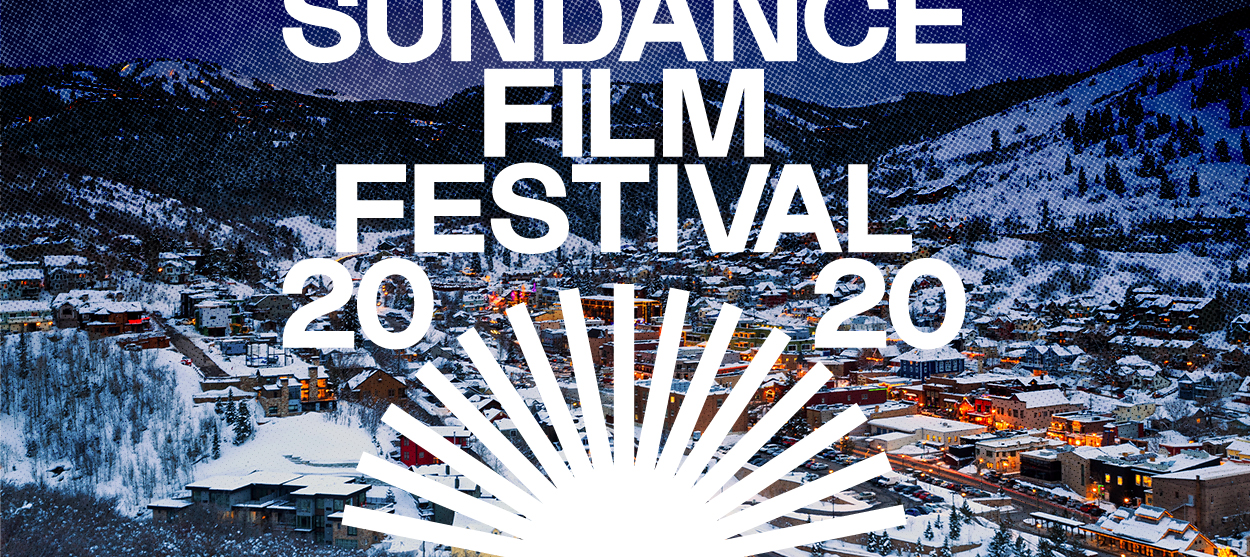Sundance reckons with the streaming revolution
How the famous movie fest reckoned this year with a changing medium


A free daily email with the biggest news stories of the day – and the best features from TheWeek.com
You are now subscribed
Your newsletter sign-up was successful
The 2020 edition of the Sundance Film Festival wrapped last weekend in Park City, Utah. The top audience and jury prizes went to Minari, a charmingly low-key drama about a Korean immigrant family operating a small farm in rural Arkansas in the early 1980s. Based on writer-director Lee Isaac Chung's own childhood, Minari is an old-fashioned Sundance movie: less concerned with heady melodrama than it is with filling in fine regional detail. As parents pursuing their dream with minimal margin for error, actors Steven Yeun and Han Ye-ri create nuanced, unforgettable characters, representing an America rarely seen on the big screen.
The movie that made Sundance's biggest splash this year though is pretty different from Minari — and unlike what a lot of cinephiles might think of as "a Sundance film." The time-loop comedy Palm Springs stars Andy Samberg and Cristin Miloti as strangers who keep reliving the same destination wedding day, over and over. Palm Springs puts some funny and even somewhat profound new twists on the familiar Groundhog Day premise; and with its broad comedy and cast full of recognizable TV stars, it has probably the most box office potential of any Sundance picture in years.
Neon and Hulu partnered on a distribution deal for Palm Springs that was narrowly the biggest in the festival's history, paying $17,500,000.69. (Yes, the extra pennies put it over the top.) The movie will get a theatrical release before settling into its streaming home on Hulu. Minari, meanwhile, will be released by A24 later this year, before finding a TV and streaming platform on Showtime, which recently inked a deal to carry all of the boutique production company's movies for the next two years.
The Week
Escape your echo chamber. Get the facts behind the news, plus analysis from multiple perspectives.

Sign up for The Week's Free Newsletters
From our morning news briefing to a weekly Good News Newsletter, get the best of The Week delivered directly to your inbox.
From our morning news briefing to a weekly Good News Newsletter, get the best of The Week delivered directly to your inbox.
At the 2020 Sundance, so many movies were bound for the likes of Hulu, Showtime, HBO, and even ESPN that some critics wondered if they should've stayed home. Even this year's big opening night premiere — the Taylor Swift documentary Miss Americana — debuted on Netflix before the festival was over.
This isn't just a Sundance issue. Film festivals and Hollywood movie studios alike have been racing to keep up with the trends in mass media, where cell phones, video games, and subscription streaming services are changing the ways consumers engage with screens and stories. What do audiences want? On-demand convenience or one-of-a-kind experiences? Small, personal movies, or cinematic comfort food?
These were the kinds of questions echoing in around the Utah mountains last week. Unsurprisingly, some of Sundance 2020's best movies combined the old and the new, and the mainstream and the arty.
The challengers
A free daily email with the biggest news stories of the day – and the best features from TheWeek.com
Two of my most astonishing moments at Sundance this year involved staring into a screen roughly the size of a cell phone, set into a pair of goggles pulled over my eyes. Walt Disney offered the press a preview of its virtual reality short Myth: A Frozen Tale, an experiment in applying VR's 360-degree immersion to traditional Disney animated storytelling. Later, at Sundance's "New Frontier" exhibit space, I experienced an abridged version of a traveling "augmented reality" museum installation called Solastalgia, in which I walked through real ruins in an actual physical space, where the ghosts of the departed suddenly flickered to life in front of me like holograms, to share their stories.
Though these were really more encounters than films, both Myth and Solastalgia used cutting-edge techniques and equipment to pull apart familiar kinds of cinema — a dazzling Disney cartoon and a poetic post-apocalyptic mood-piece, respectively — and reconstruct them as immersive environments.
This theme of entering other people's worlds via technology was prevalent throughout the 2020 Sundance, even in the narrative features.
In Edson Oda's melancholy, spiritual drama Nine Days, for example, Winston Duke plays a kind of cosmic Human Resources rep, who interviews newly born souls (played by Zazie Beetz and Tony Hale, among others), and picks the ones he wants to be born as humans on Earth. He then observes the world through their eyes on video monitors, while pondering what makes a "good" person.
Similarly, in writer-director Brandon Cronenberg's body-horror picture Possessor, Andrea Riseborough plays a skilled assassin working for a company that plugs her consciousness into the bodies of people who have a close connection to her target. Much of the movie is about the heroine seeing through the eyes of another person — in this case, a screwed-up schlub played by Christopher Abbott — as she tries to avoid confronting her own personal issues.
Visually, both Nine Days and Possessor are stunning, with the former's low-fi, analog version of heaven and the latter's stomach-turning splatter showing a lot of imagination. Many fest-goers were emotionally swept up by these movies — and especially by Nine Days, which left many in my theater sobbing.
Myself, I found them more interesting as intellectual exercises, relying too much on bland generalities when it comes to proposing what "living" really means. But I can't deny that there could be something eerily prophetic in their shared vision of a reality experienced vicariously and inexactly, through screens and POV shots. Or maybe "prophetic" is the wrong word. Maybe the future is already here.
The stalwarts
Alongside the newcomers and the explorers, Sundance always leaves plenty of room in the program for its alumni, too. Josephine Decker, who wowed the 2018 Sundance with the psychodrama Madeline's Madeline, returned this year with Shirley, an adaptation of a novel inspired by early 1950s academia and the life of author Shirley Jackson. And Sean Durkin, who hit with the suspense film Martha Marcy May Marlene in 2011, came back in 2020 with his belated follow-up The Nest, starring Jude Law as a 1980s wheeler-dealer who drags his skeptical family to England, where their new life proves less glamorous than he'd promised.
Shirley is a fairly straightforward literary melodrama; but it's infused with Decker's highly subjective style, which encourages viewers to identify with her heroines' mental illness. The Nest is a modest domestic drama; but it's shot like a haunted house thriller. Both films are set in the past and in a way are from the past, in that both uphold the traditions of arthouse cinema. They're made for audiences who don't mind a slower pace or a more oblique approach to storytelling. They invite us into their very distinct worlds in their own way — no VR goggles required.
There's something to be said for this kind of old-fashioned moviemaking. Consider also the documentarian Kirby Dick and his longtime creative partner Amy Ziering, who have regularly rocked Park City with their fiery advocacy docs, and who drew a lot of pre-Sundance headlines this year with On the Record, about the women who've accused hip hop legend Russell Simmons of rape. Prior to the fest, producer Oprah Winfrey and distributor Apple TV+ pulled out of the project, with Winfrey saying the movie left too many gaps in the accusers' testimony. (The soon-to-launch streaming service HBO Max has since signed a deal to distribute.)
Yet at the emotionally charged first screening of On the Record at Sundance — with many of the doc's subjects in attendance — what the audience saw and reacted to was a thorough and richly contextualized piece of journalism. What makes this picture so powerful is that the veterans Dick and Ziering clearly did do the legwork, assuring that On the Record isn't just a document of scandalous gossip but a more far-reaching film about what happens when celebrities like Simmons become "too big to cancel."
The masters
On the whole, compared to last year's line-up (which included The Farewell, The Report, The Souvenir, The Last Black Man in San Francisco and Apollo 11), the 2020 Sundance featured fewer major finds. This felt like a transitional year, as programmers and filmmakers poked around for what's next in independent cinema.
But two films really stood out for me, primarily because both combined the themes mentioned above. They were made by accomplished Sundance alumni, they're a mix of the crowd-pleasing and the adventurous, and they use innovative techniques to plunge viewers into a different reality.
I hope audiences have a chance to see Bloody Nose, Empty Pockets, an unusual quasi-documentary made by brothers Bill and Turner Ross. Though the movie takes place over the course of the final night of a failing Las Vegas dive bar, it was actually shot over multiple days in Vegas and New Orleans, with a cast of colorful barflies and actors playing outsized versions of themselves. The result is something astonishing: an unscripted film, populated by drunken strangers, which has the rhythm and flow of one of Robert Altman's 1970s ensemble comedies. It's filled with funny lines and shocking honesty about the state of the American dream, expressed by people who feel excluded by this country's race toward some kind of corporate-approved tech utopia.
Nearly everyone will get a chance though to see Dick Johnson Is Dead — provided they're Netflix subscribers. And a lot of of those people will love Kirsten Johnson's documentary, which is all about the final years of her adorable father: a man she's trying to preserve on film before he slides too far into dementia. Part home movie and part heartfelt fantasy — with multiple scenes where Johnson stages spectacular deaths and afterlives for her dad, so they can both get used to what dying might be like — the doc cuts to the heart of what really matters in life, with a specificity too many of this year's Sundance movies lacked.
Ultimately, many more people will watch Dick Johnson Is Dead than will watch Bloody Nose, Empty Pockets, because the former will soon be in "the cloud" — which casts a long shadow over modern showbiz. But both are remarkable; and more importantly, they're memorable.
No matter the medium, this is what everyone who tells stories today is after: something that sticks in the mind and shapes how we see the world.
Want more essential commentary and analysis like this delivered straight to your inbox? Sign up for The Week's "Today's best articles" newsletter here.
Noel Murray is a freelance writer, living in Arkansas with his wife and two kids. He was one of the co-founders of the late, lamented movie/culture website The Dissolve, and his articles about film, TV, music, and comics currently appear regularly in The A.V. Club, Rolling Stone, Vulture, The Los Angeles Times, and The New York Times.
-
 Why are election experts taking Trump’s midterm threats seriously?
Why are election experts taking Trump’s midterm threats seriously?IN THE SPOTLIGHT As the president muses about polling place deployments and a centralized electoral system aimed at one-party control, lawmakers are taking this administration at its word
-
 ‘Restaurateurs have become millionaires’
‘Restaurateurs have become millionaires’Instant Opinion Opinion, comment and editorials of the day
-
 Earth is rapidly approaching a ‘hothouse’ trajectory of warming
Earth is rapidly approaching a ‘hothouse’ trajectory of warmingThe explainer It may become impossible to fix
-
 Walter Isaacson's 'Elon Musk' can 'scarcely contain its subject'
Walter Isaacson's 'Elon Musk' can 'scarcely contain its subject'The latest biography on the elusive tech mogul is causing a stir among critics
-
 Welcome to the new TheWeek.com!
Welcome to the new TheWeek.com!The Explainer Please allow us to reintroduce ourselves
-
 The Oscars finale was a heartless disaster
The Oscars finale was a heartless disasterThe Explainer A calculated attempt at emotional manipulation goes very wrong
-
 Most awkward awards show ever?
Most awkward awards show ever?The Explainer The best, worst, and most shocking moments from a chaotic Golden Globes
-
 The possible silver lining to the Warner Bros. deal
The possible silver lining to the Warner Bros. dealThe Explainer Could what's terrible for theaters be good for creators?
-
 Jeffrey Wright is the new 'narrator voice'
Jeffrey Wright is the new 'narrator voice'The Explainer Move over, Sam Elliott and Morgan Freeman
-
 This week's literary events are the biggest award shows of 2020
This week's literary events are the biggest award shows of 2020feature So long, Oscar. Hello, Booker.
-
 What She Dies Tomorrow can teach us about our unshakable obsession with mortality
What She Dies Tomorrow can teach us about our unshakable obsession with mortalityThe Explainer This film isn't about the pandemic. But it can help viewers confront their fears about death.
